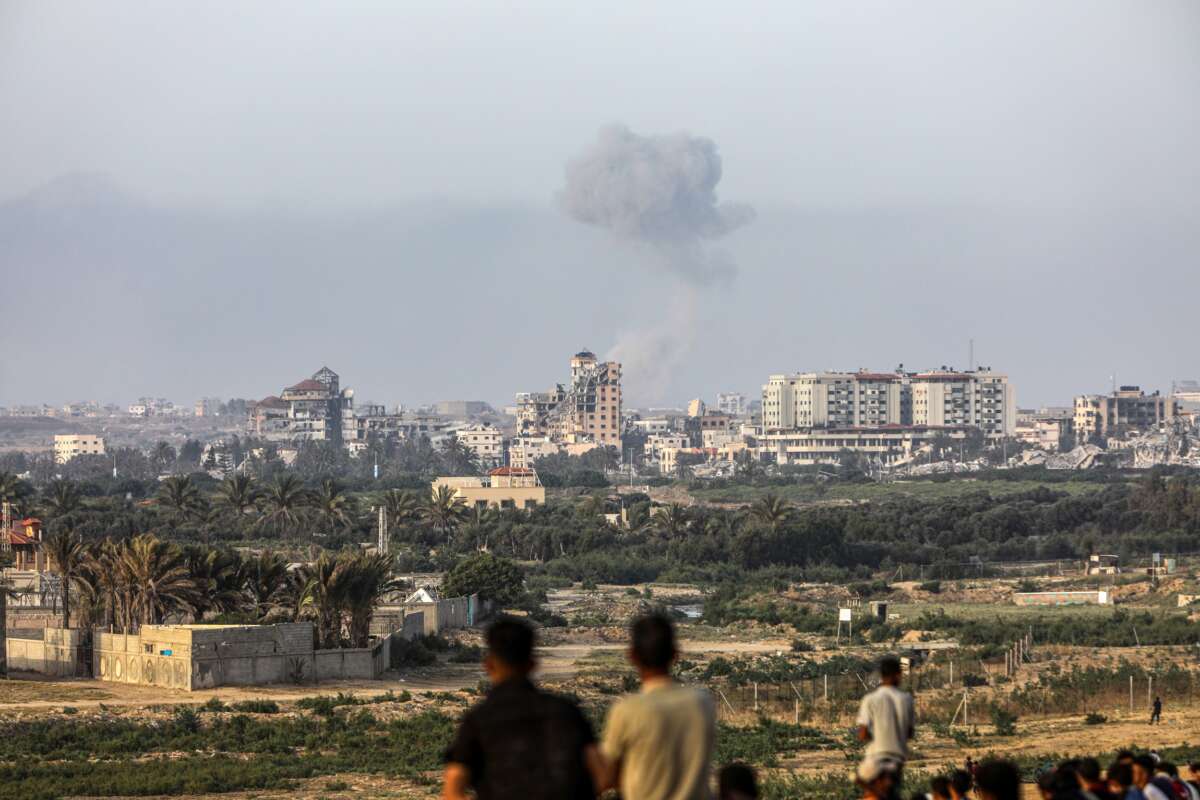Israeli leaders are publicly stating that an impending ruling on Friday from the International Court of Justice (ICJ) will not have any impact on their plans to continue the government’s genocidal war on Gaza.
But in private, officials are worried that a ruling against Israel will come with immense political costs on the international stage.
The ICJ is set to rule in a decision regarding a request from South Africa last week to limit Israel’s imminent military offensive in Rafah, which technically already began earlier this month. The request from South Africa is part of its ongoing case accusing Israel of committing genocide in Gaza.
The ICJ has so far refused to rule that Israel has engaged in genocide or that it must halt its military operations. It did rule in January, however, that Israel must ensure its troops do not commit genocidal acts, and allow for more humanitarian aid to flow into Gaza — something Israel has refused to do.
South African officials claim the offensive in Rafah and other actions by Israel since the January verdict are destroying the “essential foundations of Palestinian life.” Indeed, in the months since the initial ICJ ruling, thousands more have been killed in Gaza, with aid groups expressing grave concern over famine taking over many parts of the region. Some health workers in Gaza are even reporting that many patients, lacking proper medical care and access to treatments, have maggot-infested wounds.
“Palestinians do not need any more diplomatic gesturing, no more abstract words, no more virtuous condemnations and denunciations of Israel’s actions,” said Tembeka Ngcukaitobi, a lawyer with the South African delegation to the ICJ, speaking before the court last week. “There is no more time to spare: it is simply now or never.”
ICJ rulings are technically legally binding. However, they are incredibly difficult to enforce — in fact, one Israeli government spokesperson said today that “no power on earth will stop Israel” from continuing its genocidal military operations within Gaza.
Still, behind the scenes, the possible action from the ICJ (which could include ordering Israel to halt its Rafah offensive or even military operations altogether) is worrying some officials in Israel, who recognize that, even if they disregard a ruling from the court, it could result in consequences for the country on the international stage, including in the form of economic sanctions.
Despite these worries, Israel has actually intensified its assault on Rafah in the past few days. This morning, Palestinian journalist Doaa Khaled shared footage to social media documenting sounds of gunfire emanating from the Yibna refugee camp in the center of the city, indicating the escalation of Israel’s ground assault in the heart of Rafah.
A ruling from the ICJ regarding Israel’s actions in Rafah comes with the backdrop of nearly 1 million Palestinians fleeing the city in the past two weeks, as they expect military operations to increase there in the coming days. Since early October, Israel has killed more than 36,000 Palestinians in the genocidal war on Gaza, more than 40 percent of whom have been children.
Press freedom is under attack
As Trump cracks down on political speech, independent media is increasingly necessary.
Truthout produces reporting you won’t see in the mainstream: journalism from the frontlines of global conflict, interviews with grassroots movement leaders, high-quality legal analysis and more.
Our work is possible thanks to reader support. Help Truthout catalyze change and social justice — make a tax-deductible monthly or one-time donation today.
